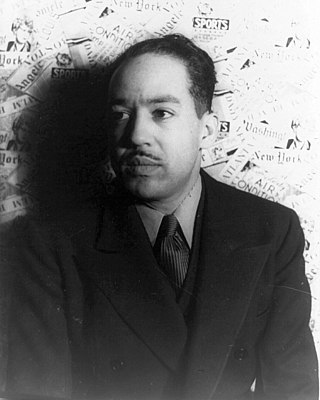
Brown University is a private Ivy League research university in Providence, Rhode Island. It is the seventh-oldest institution of higher education in the United States, founded in 1764 as the College in the English Colony of Rhode Island and Providence Plantations. One of nine colonial colleges chartered before the American Revolution, it was the first college in the United States to codify in its charter that admission and instruction of students was to be equal regardless of their religious affiliation.

Rice University, formally William Marsh Rice University, is a private research university in Houston, Texas, United States. It sits on a 300-acre campus adjacent to the Houston Museum District and the Texas Medical Center.

Black studies or Africana studies, is an interdisciplinary academic field that primarily focuses on the study of the history, culture, and politics of the peoples of the African diaspora and Africa. The field includes scholars of African-American, Afro-Canadian, Afro-Caribbean, Afro-Latino, Afro-European, Afro-Asian, African Australian, and African literature, history, politics, and religion as well as those from disciplines, such as sociology, anthropology, cultural studies, psychology, education, and many other disciplines within the humanities and social sciences. The field also uses various types of research methods.

The Rhode Island School of Design is a private art and design school in Providence, Rhode Island. The school was founded as a coeducational institution in 1877 by Helen Adelia Rowe Metcalf, who sought to increase the accessibility of design education to women. Today, RISD offers bachelor's and master's degree programs across 19 majors and enrolls approximately 2,000 undergraduate and 500 graduate students. The Rhode Island School of Design Museum—which houses the school's art and design collections—is one of the largest college art museums in the United States.

Matilda Sissieretta Joyner Jones was an American soprano. She sometimes was called "The Black Patti" in reference to Italian opera singer Adelina Patti. Jones' repertoire included grand opera, light opera, and popular music. Trained at the Providence Academy of Music and the New England Conservatory of Music, Jones made her New York City debut in 1888 at Steinway Hall, and four years later she performed at the White House for President Benjamin Harrison. She sang for four consecutive presidents and the British royal family, and was met with international success. Besides the United States and the West Indies, Jones toured in South America, Australia, India, southern Africa, and Europe.

Pembroke College in Brown University was the coordinate women's college for Brown University in Providence, Rhode Island. It was founded in 1891 and merged into Brown in 1971.

Margaret Allison Bonds was an American composer, pianist, arranger, and teacher. One of the first Black composers and performers to gain recognition in the United States, she is best remembered today for her popular arrangements of African-American spirituals and frequent collaborations with Langston Hughes.
The Providence Black Repertory Company (Black Rep) was a 501c3 non profit arts organization based in Providence, Rhode Island, USA. It offered programming inspired by the cultural traditions of the African Diaspora in Theater, Education, and Public Programs. It operated from 1996 till 2009.

James Mercer Langston Hughes was an American poet, social activist, novelist, playwright, and columnist from Joplin, Missouri. One of the earliest innovators of the literary art form called jazz poetry, Hughes is best known as a leader of the Harlem Renaissance. He famously wrote about the period that "the Negro was in vogue", which was later paraphrased as "when Harlem was in vogue."
The Langston Hughes Society is a United States-based literary society concerned with the work of African American poet Langston Hughes. The society was the first national organization to be dedicated to the work of an African American writer. Founded after the poet's death and in the wake of the Langston Hughes Study conference of 1981 by Hughes' literary assistant George Houston Bass, the society's official publication is the Langston Hughes Review, published by Institute for African American Studies at The University of Georgia. The organisation also presents the Langston Hughes Award annually.

The history of Brown University spans 259 years. Founded in 1764 as the College in the English Colony of Rhode Island and Providence Plantations, Brown is the seventh-oldest institution of higher education in the United States and the third-oldest institution of higher education in New England. At its foundation, the university was the first in the U.S. to accept students regardless of their religious affiliation. Brown's medical program is the third-oldest in New England while its engineering program is the oldest in the Ivy League.

Loni Berry is a theatre educator/artist. He has taught at numerous universities and is Artistic Director of Culture Collective Studio, a theatre production company in Bangkok, Thailand.
Reverend Joseph Fish (1705-1781) from Plymouth Colony, Massachusetts, was for fifty years pastor of the Congregational Church in North Stonington, Connecticut.
Barry Earl Beckham is an American playwright and novelist.
Rose Weaver is an American actress, singer, director and writer in Rhode Island. Weaver is described as a "major figure in Rhode Island entertainment," and she is known for her role in the film Poetic Justice.
George Houston Bass was an American playwright, director and writer. He lived and worked in Providence, Rhode Island. He founded the Rites and Reason Theater at Brown University in September 1970. He was also the literary secretary to and the executor of the literary estate of poet Langston Hughes. Bass founded the Langston Hughes Society in 1981 and the society's publication, the Langston Hughes Review, in 1982.
Jelili Atiku is a multimedia performance artist and sculptor from Lagos, Nigeria. His performance with drawing, photography, installation sculpture, video and live performance have made him one of the most recognized performance artists from Nigeria around the world. His work is said to have a power which "lies in his use of Yoruba symbols and traditions of his local community"
Davóne Tines is an American operatic bass-baritone, known for creating roles in new works and for his collaborations with director Peter Sellars.











